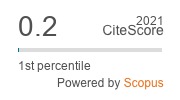Work Zone Traffic Management: Engineering Safe and Efficient Mobility During Urban Road Constructions
Abstract
Urban road construction activities, while essential for infrastructure maintenance and growth, present significant disruptions to traffic flow, public safety, and multimodal accessibility. This study investigates the effectiveness of Work Zone Traffic Management (WZTM) strategies in enhancing mobility and safety during urban construction projects. Using three case study sites in the United States including Chicago, Los Angeles, and Atlanta, the research analyzes speed reductions, travel delays, crash trends, and mitigation strategies through quantitative data, field observations, and stakeholder interviews. Key findings indicate that although work zones reduce vehicular speeds and increase travel times by up to 300%, targeted interventions such as smart work zone technologies, automated flagging devices, and real-time traveler information systems can significantly mitigate safety risks and operational delays. However, gaps in pedestrian accommodation, inconsistent enforcement, and implementation failures remain persistent. The study emphasizes the importance of integrating intelligent transportation systems (ITS), public communication strategies, and multimodal accessibility planning into Traffic Management Plans (TMPs). It concludes with actionable recommendations for transportation agencies to adopt a more holistic, multidisciplinary, and performance-based approach to work zone planning in urban contexts.




